Foundational
Quality Assurance
Quality assurance done right, from day one
An initial must-have QA solution that is integrated into development ensures accountability for quality, establishes structured testing procedures to prevent missed bugs, and instills a philosophy in which developers prevent defects from occurring.
Testing ≠ quality
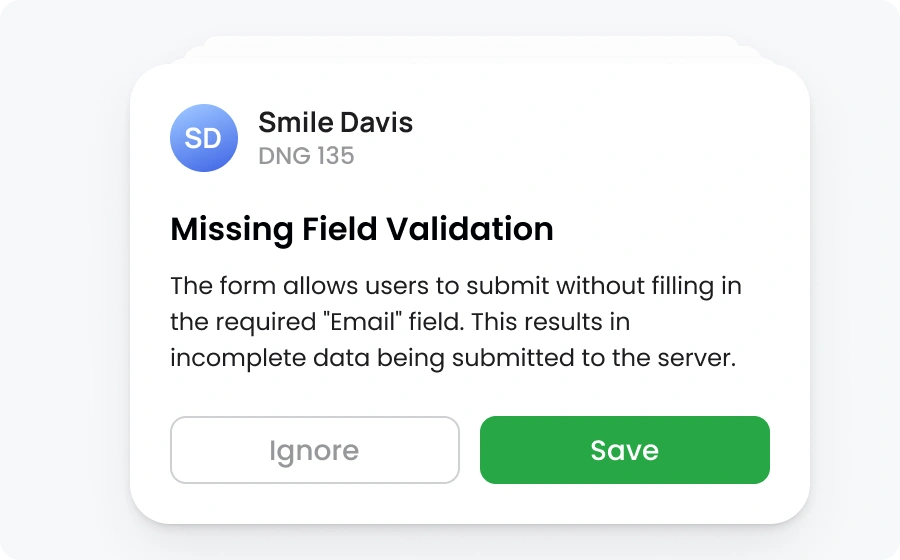
Companies often confuse testing with quality assurance. QA aims to prevent bugs from occurring by implementing processes and standards, while testing identifies bugs that result from gaps in the QA process.
Lack of responsibility
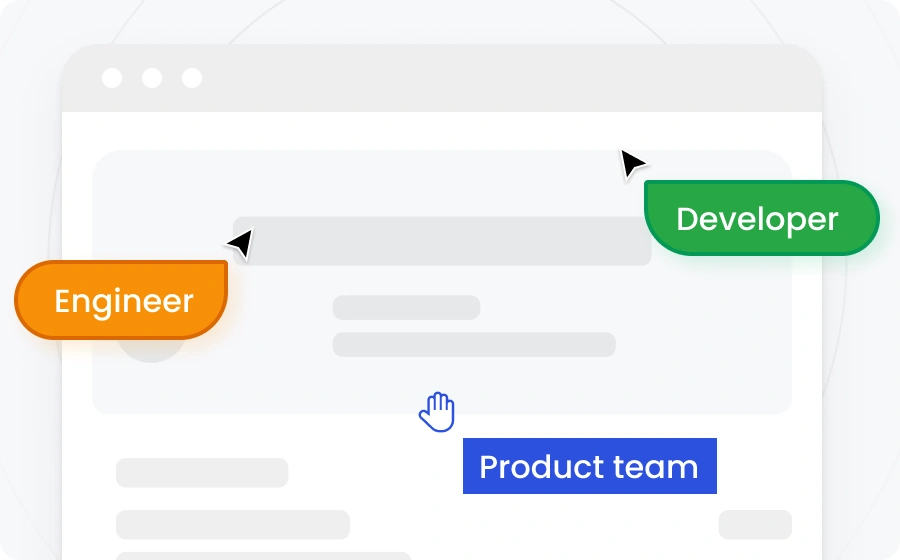
Often, testing is performed by developers, product team members, or unqualified test engineers without the necessary skills, devices, or platforms, making it difficult to identify a responsible party.
Service outages
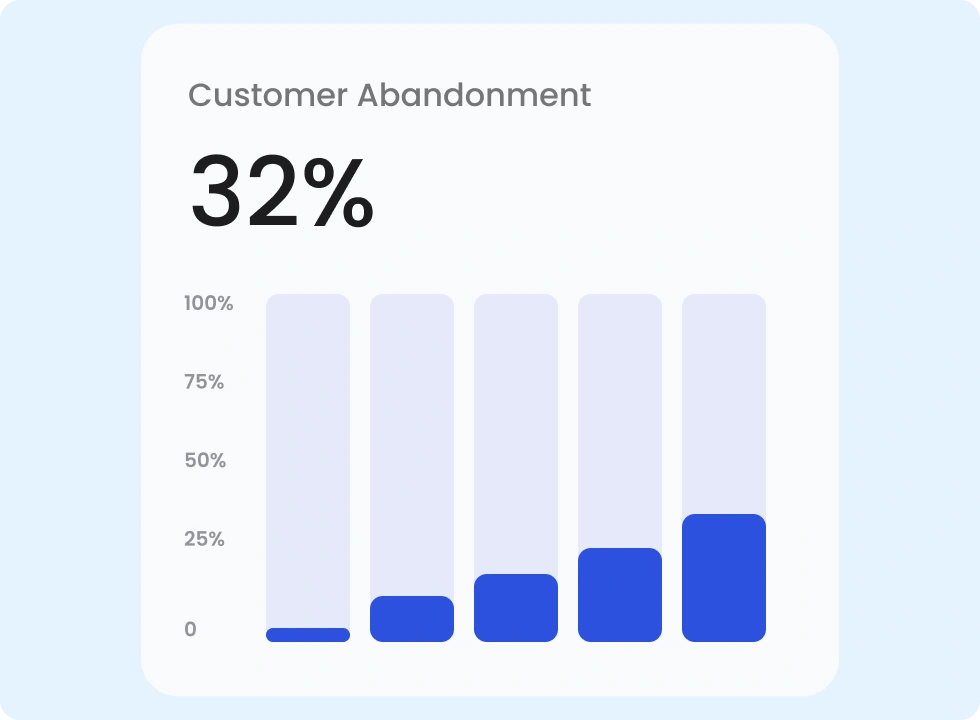
Poor quality or missing QA can result in a negative customer experience.
32% of customers will abandon a brand after a single poor experience. Implementing professional QA maintains your hard-fought reputation and keeps your customers and revenue secure.
Foundational Quality Assurance delivers the essential QA framework for your product
DeviQA introduces an expert QA role to the project, building a QA process from scratch and taking accountability for testing by knowing when, how, and what to test.
Setup a formal QA process
Establishment of a structured QA process tailored to the business's specific needs
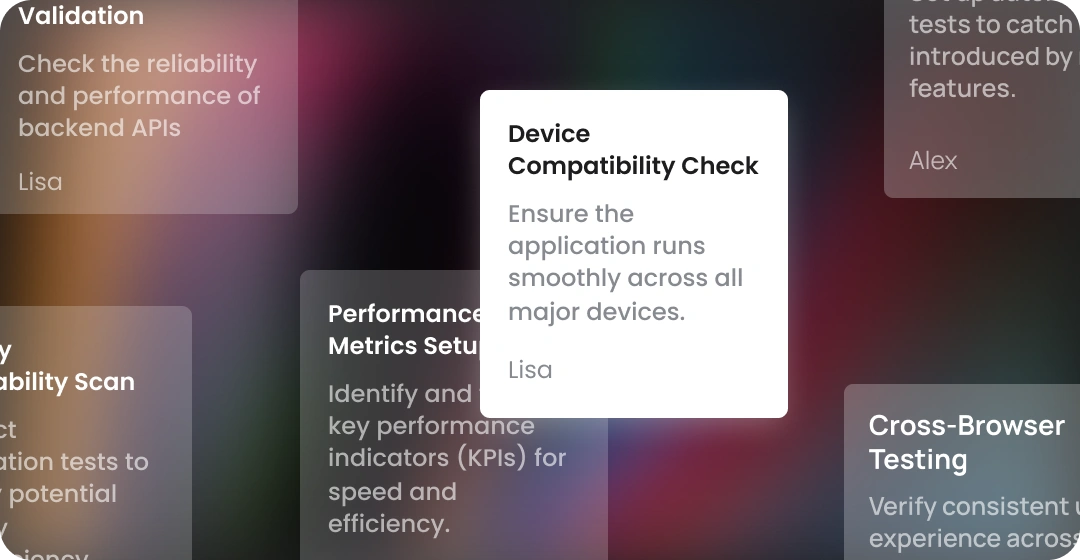
Integrate it into the development process
Seamless incorporation of QA into the existing development lifecycle

Setup and configure all required QA tools
Selection, installation, and configuration of essential QA tools

Design a test plan / test strategy
Creation of a comprehensive test plan or strategy outlining scope, objectives, and deliverables

Design test cases to ensure that no scenarios are missed
Development of detailed test cases covering all possible scenarios, including edge cases

Functional testing
Execution of tests to verify that the software functions as expected according to requirements
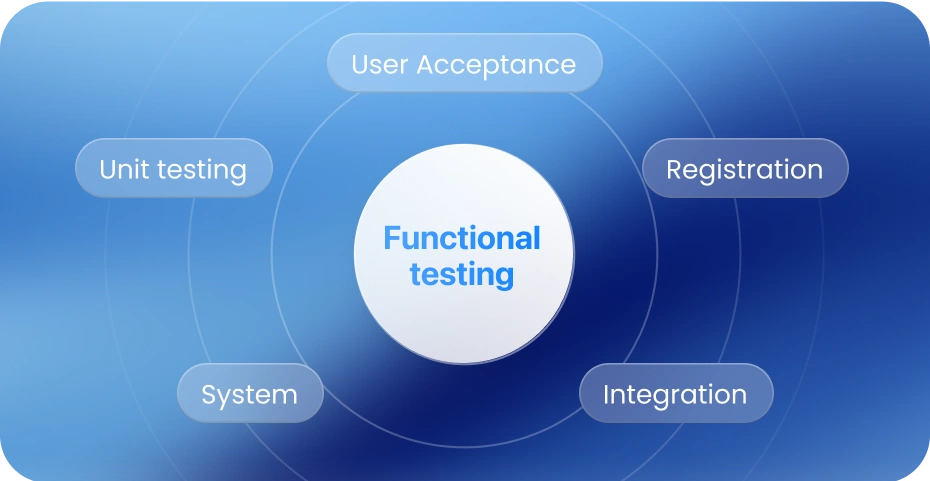
Cross-browser/device testing
Testing the software across multiple browsers and devices to ensure compatibility

Usability testing
Evaluation of the software’s user interface and overall user experience

On-demand types of testing: integration, compatibility, localization, accessibility
Access to specialised testing services like Integration, Compatibility, Localisation, and Accessibility testing

Test report preparation
Generation of detailed test reports and ongoing quality control measures to maintain software quality
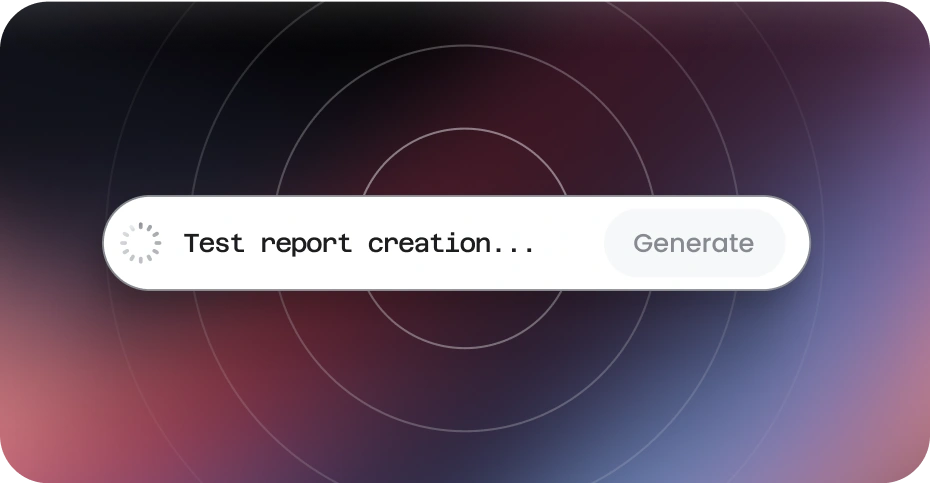
Ensure quality from day one with Foundational QA
Our QA solutions integrate seamlessly into your development process, preventing bugs, enhancing productivity, and ensuring long-term savings. Perfect for digitally-enabled companies needing a structured, reliable QA process
